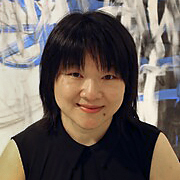Dr Delia Lin
- Dr Delia Lin

Dr Delia Lin is Senior Lecturer in Chinese Studies at the Asia Institute.
Biography
I did my BA and MA in linguistics, applied linguistics and translation studies at a Chinese university in Wuhan and obtained my PhD in Humanities from Griffith University, Australia. I joined the University of Melbourne in 2018 and am currently a Senior Lecturer in Chinese Studies in the Asia Institute of the Faculty of Arts teaching in the Master of Translation and Interpreting program. Prior to my appointment at the University of Melbourne, I have held academic positions as Lecturer from the University of Adelaide, Bond University, Griffith University, Queensland University of Technology and Huazhong University of Science and Technology, China. I’m interested in analysing the linguistic, cultural, philosophical and psychological foundation of contemporary Chinese politics and governance. My monograph Civilising Citizens in Post-Mao China: Understanding the Rhetoric of Suzhi (Routledge 2017) largely constructs around a single but thorny Chinese word and contextualises the use of the word in Chinese politics and society.
What was the most memorable moment of your academic career?
The most memorable moment of my academic career has to be the time when I submitted my PhD thesis while working as a Lecturer. It was challenging to complete a thesis while working full time. I stayed up all night to complete my Bibliography but was energised as I was binding my thesis in the library to get ready for submission.
What shaped your academic interests?
I have always been fascinated with language and its use in cross-cultural communication. This passion for language has empowered me to move between disciplines to analyse how words shape political ideas and emotions.
What book would you recommend a first-year in your discipline area to read?
I would recommend Hiding from Humanity: Disgust, Shame and the Law by Martha C. Nussbaum, which provides a compelling analysis of the emotions of disgust and shame and their role in our social and legal life.
What does Academic Advising mean for you?
It means being a fascinated listener and connecting with new students, supporting them on their journey of knowledge and discovery.
What do you think it means for students? How will it assist them in their UG journey?
It means creating a culture of engagement with academic staff. It will provide further support to their UG journey so that they can navigate their University life with more freedom.
What are some interesting stories from your first Academic Advising meeting?
I’m inspired to learn that how online learning can work as a good introduction to the University life due to its flexibility.